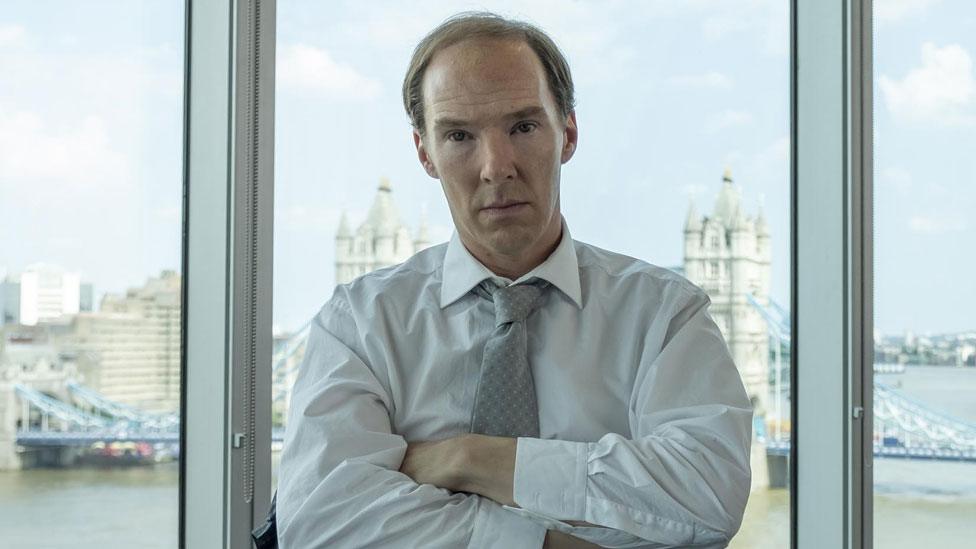Will Gompertz reviews Brexit: The Uncivil War starring Benedict Cumberbatch ★★★★☆
- Published
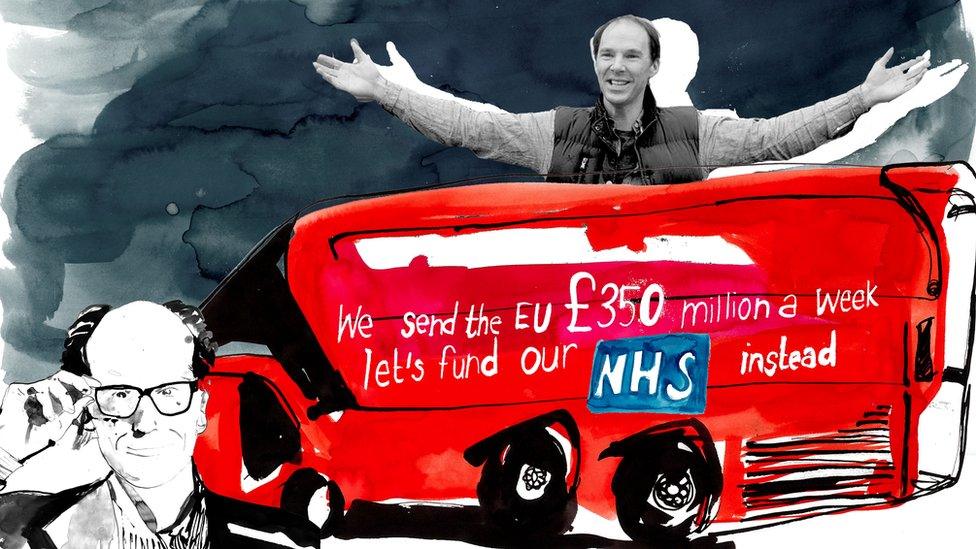
This week we are pulling up at the crossroads where art meets politics. It's not the latest Ai Weiwei installation, or a pro-Trump tweet from Kanye, but a TV movie called Brexit: The Uncivil War, a two-hour dramatised account of how Vote Leave won the EU Referendum on 23 June 2016.
It's written by James Graham, the talented young playwright with a string of West End hits, among which is This House, his satirical take on the Labour government of 1974-79.
Graham's work has a depth that goes beyond simply portraying British politics; he is questioning its foundations and structure. And so it is with Brexit: The Uncivil War, a TV movie that doesn't seek to retell a familiar story, but to ask an unfamiliar question: we know who won, but do we know how?
Benedict Cumberbatch takes centre stage, swapping his handsome-yet-nerdy Sherlock Holmes persona for his baldy-and-even-more-nerdy Dominic Cummings, Vote Leave's real life campaign director and one-time special adviser to Michael Gove.
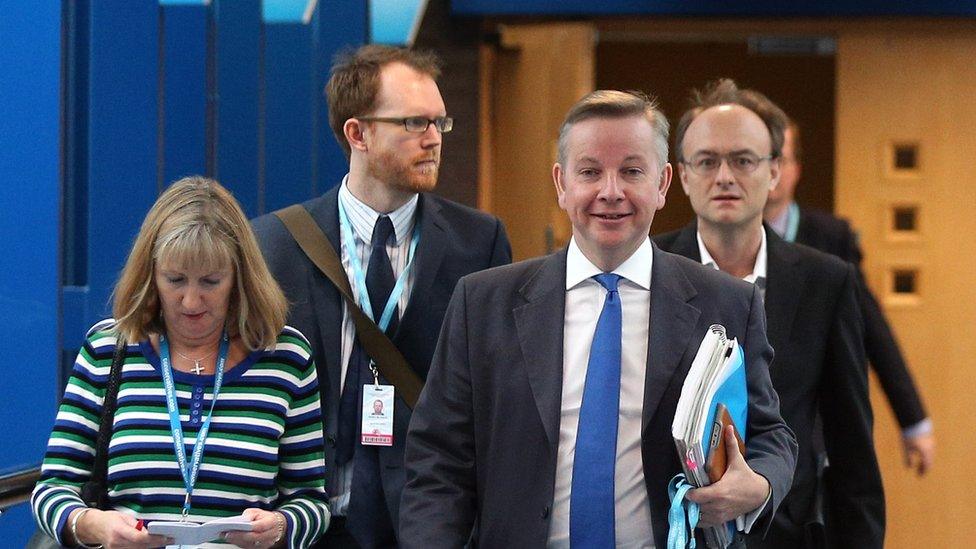
Dominic Cummings (behind Michael Gove's left shoulder) was the former education secretary's special adviser
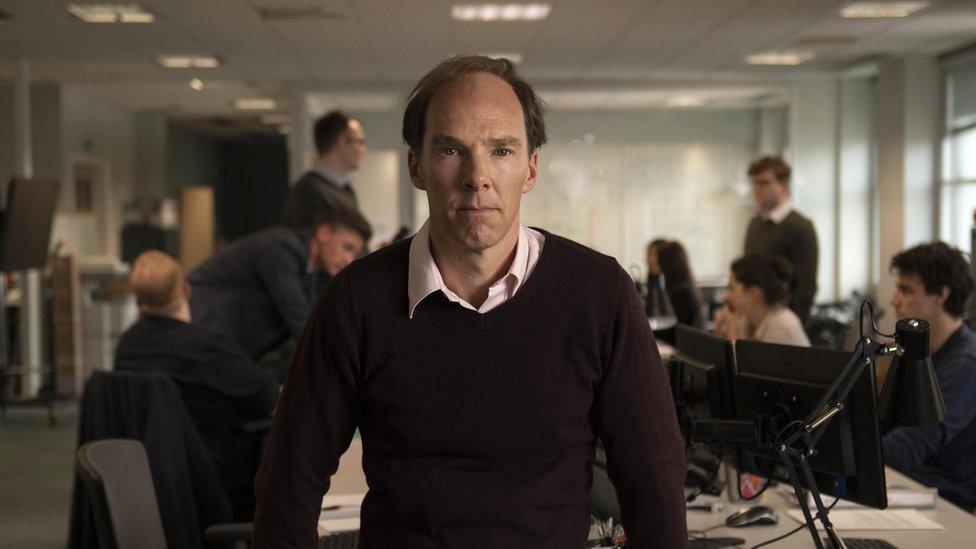
Benedict Cumberbatch gives a compelling performance as Dominic Cummings, the leading strategist and campaign director of Vote Leave
Cumberbatch presents us with an intense, socially awkward, strategic mastermind with a gentle Durham accent and a penchant for hanging out in stationery cupboards at work.
He is aided and abetted by Vote Leave's CEO, Matthew Elliot, played by John Heffernan, as a deferential fixer in King Cummings's court.
Rory Kinnear provides the oppo in the shape of Craig Oliver, then No 10's director of communications.
There are cameos for Michael Gove (Oliver Maltman), Boris Johnson (Richard Goulding), Nigel Farage (Paul Ryan), and Arron Banks (Lee Boardman): all are no more than glib caricature impersonations, but amusing in a Spitting Image-type way.
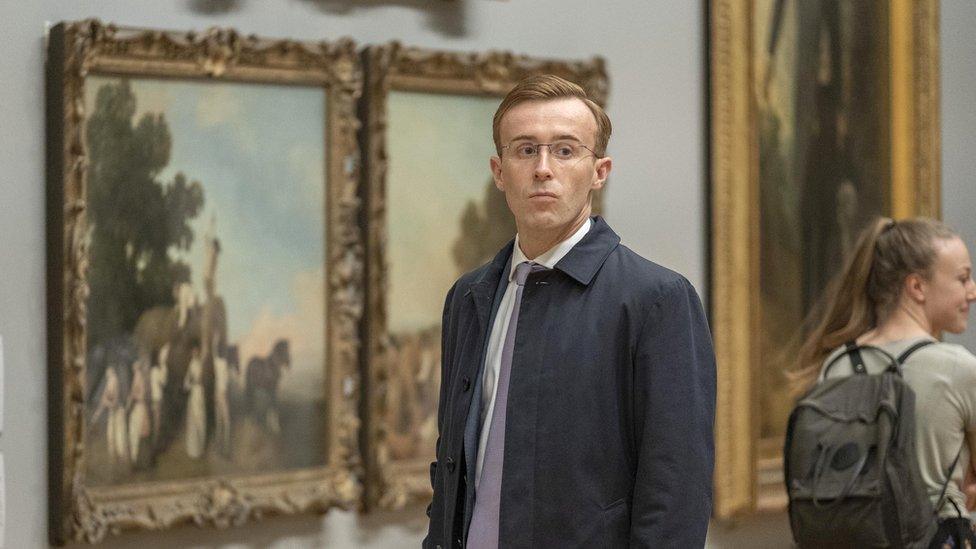
John Heffernan plays Matthew Elliot, mild-mannered Vote Leave chief executive
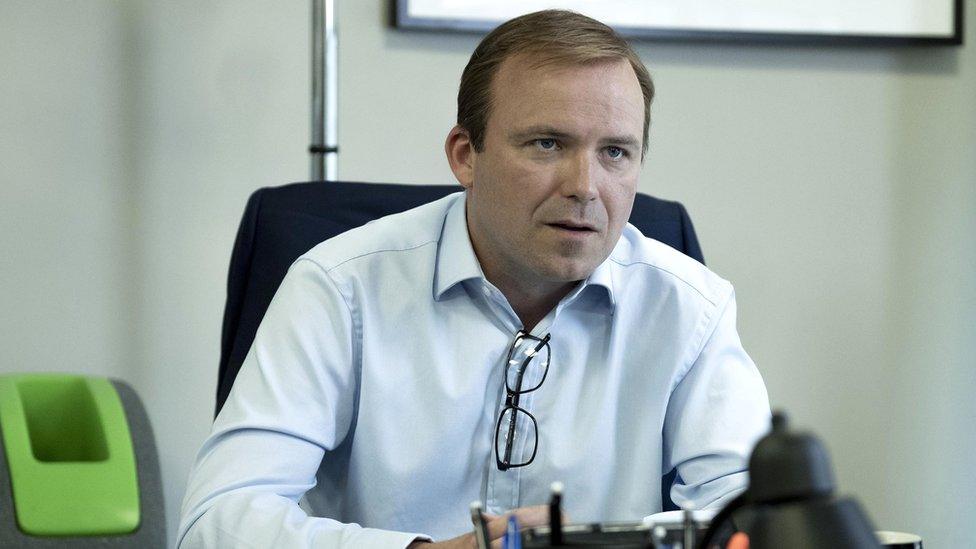
Rory Kinnear plays Craig Oliver, who as David Cameron's spin doctor, oversaw Remain's communications strategy
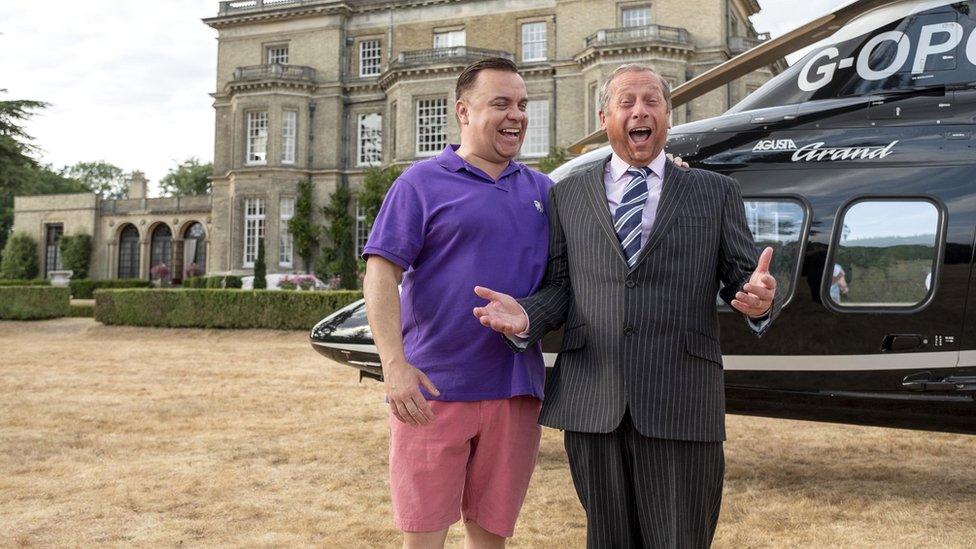
Lee Boardman portrays businessman Arron Banks, who funded the rival Brexit campaign, and worked with the then UKIP leader, Nigel Farage (Paul Ryan)
David Cameron and George Osborne hardly feature at all beyond a second or two of archive footage and - in Cameron's case - as a disembodied voice on a conference call.
The film is all about Cummings and how he beat the establishment he despises, while keeping Team Farage's alternative Leave campaign at arm's length.
There's a face-off with the old guard Eurosceptic MPs, impromptu market research sessions in local pubs, a controversial red bus emblazed with the £350m-a-week NHS promise, and a park-bench meeting with a young physicist who persuades Cummings to allow his data science firm to use the referendum as an experiment in digital campaigning.
And all the while there is the dramatic build-up to Cummings coining Vote Leave's campaign message -Take Back Control.
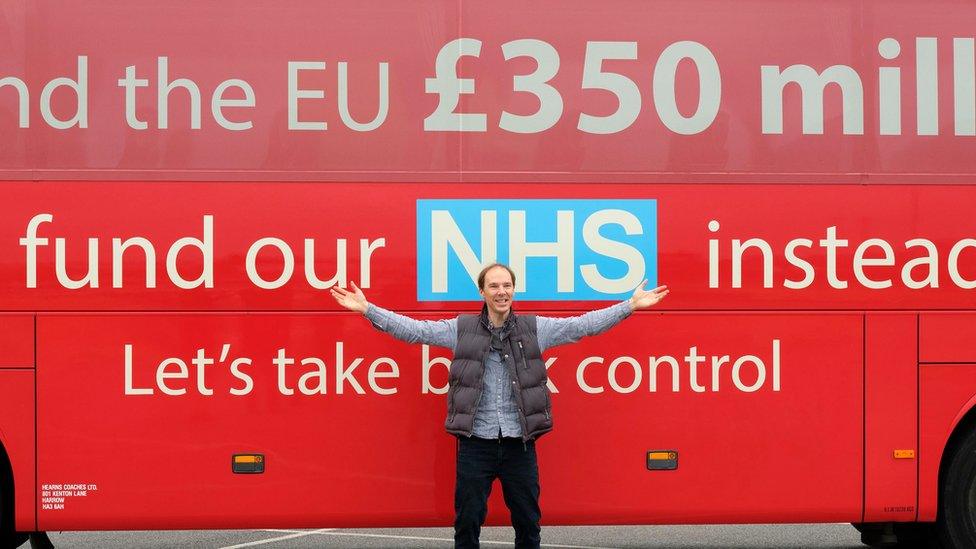
Cummings was one of those credited with the Take Back Control slogan and the claim that Britain could save £350m a week by leaving the EU
The attention the film gives the slogan succeeds in reflecting its psychological power, and the central role it played in winning the campaign, but it doesn't make for compelling telly.
The drama is delivered by Cumberbatch's portrayal of Cummings as an idealistic oddball on the mission of a lifetime. So compelling is the actor's performance, I took to the internet to find out more about the man he plays.
I found a YouTube video of Dominic Cummings delivering a talk to a group of communications professionals explaining how Vote Leave won the referendum.
It appears to have taken place about a year after the vote, during the 2017 general election.
Unlike Graham's TV dramatisation, which will probably be watched by millions, fewer than 1,000 people (at the time of writing) have seen this 30-minute talk by Cummings, although it answers the same question with less make-up and in a fraction of the time.
I thoroughly recommend watching it before seeing Brexit: The Uncivil War (Channel 4, Monday at 21:00 GMT). It not only gives you a "from the horse's mouth" version of what happened, but also an insight into Cummings's immediate post-vote plan for Boris Johnson that is missing from the film.
Of course, it is impossible to tell the entire story in one TV movie.
Graham has chosen a specific tale to tell about a character not as well known to the public as others involved, but who had a significant bearing on events. Given the subject it is likely to be contentious, but it is evidently well researched. Cumberbatch met Cummings and Graham credits journalist Tim Shipman and Craig Oliver - both of whom have written books on the referendum - as political consultants.
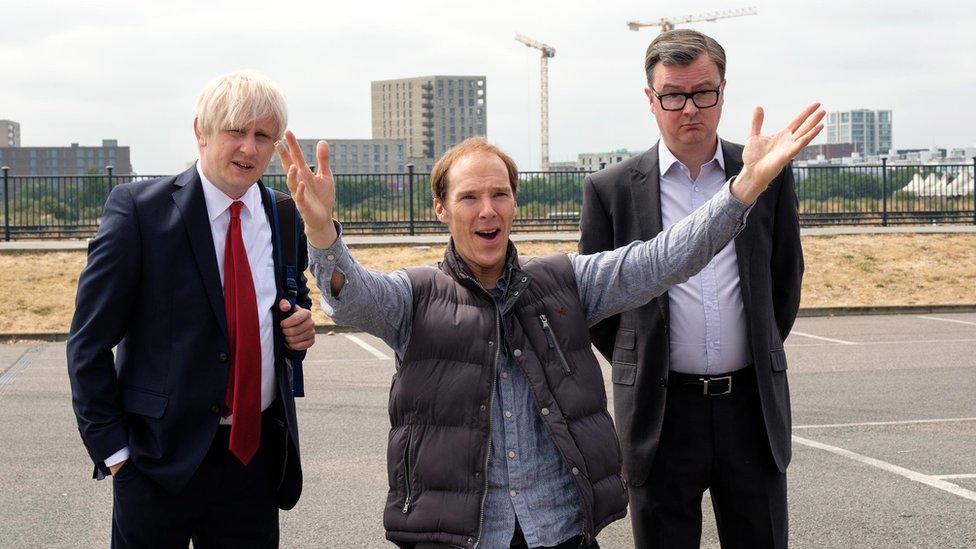
Richard Goulding plays Boris Johnson and Oliver Maltman portrays Michael Gove, who were the public faces of the official campaign for Britain to leave the EU
The result is a very watchable TV movie that has a clear structure and a well-defined plot, which falls short because it ends up being a slightly-too-long biopic with an underdeveloped cast of supporting characters, rather than a revelatory edge-of-your seat political thriller that goes right down to the wire: a case maybe, of art failing to imitate life.
- Published28 December 2018
